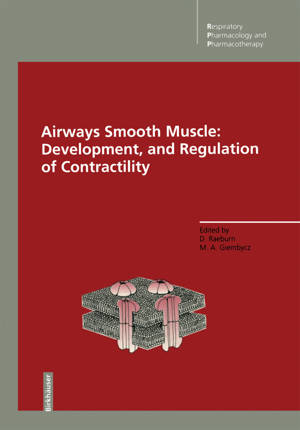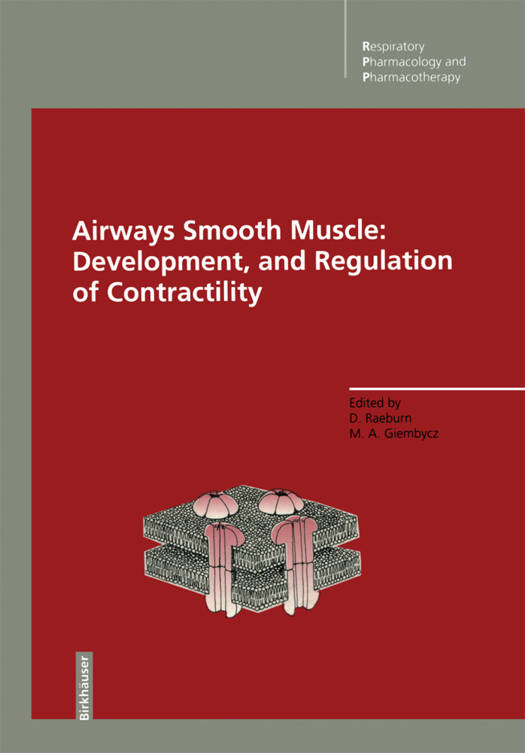
Je cadeautjes zeker op tijd in huis hebben voor de feestdagen? Kom langs in onze winkels en vind het perfecte geschenk!
- Afhalen na 1 uur in een winkel met voorraad
- Gratis thuislevering in België vanaf € 30
- Ruim aanbod met 7 miljoen producten
Je cadeautjes zeker op tijd in huis hebben voor de feestdagen? Kom langs in onze winkels en vind het perfecte geschenk!
- Afhalen na 1 uur in een winkel met voorraad
- Gratis thuislevering in België vanaf € 30
- Ruim aanbod met 7 miljoen producten
Zoeken
Airways Smooth Muscle: Development, and Regulation of Contractility
Development and Regulation of Contractility
€ 153,95
+ 307 punten
Omschrijving
Most studies on autonomic innervation of smooth muscle have focused on the short-term mechanisms involved in neurotransmission in physiological and pathophysiological conditions. However recent obser- vations of the long-term plasticity of this system, i. e. its capacity for regeneration and for compensatory change in pattern of innervation and expression of cotransmitters and receptors in ageing, following surgery, trauma or in disease, have indicated that an understanding of the mechanisms involved could influence the design of therapeutic regimes. There is increasing evidence for long-term communication between nerves and smooth muscle cells during development and throughout adult life. To date, the trophic interactions between nerves and airway musculature have attracted little interest, consequently, much of the information presented here is drawn from studies using other smooth muscles. However, the questions posed about trophic interactions dur- ing development apply as much to airways smooth muscle neuroeffector systems as to other autonomic neuroeffector systems. These are: i) How do developing nerve fibres know where to go and how do they reach their target sites? ii) What determines the density and pattern of inner- vation at reaching the effector? iii) How do the nerves survive and maintain their position once established? iv) What factors influence neurochemical differentiation such that genetically multipotential neu- rones are triggered to synthesize one or combinations of neurotransmit- ters? v) What influence do nerves have on the structure, function and receptor expression of their effector cells? vi) How do diseases interrupt these processes? - see [1].
Specificaties
Betrokkenen
- Uitgeverij:
Inhoud
- Aantal bladzijden:
- 424
- Taal:
- Engels
- Reeks:
Eigenschappen
- Productcode (EAN):
- 9783034874106
- Verschijningsdatum:
- 17/06/2012
- Uitvoering:
- Paperback
- Formaat:
- Trade paperback (VS)
- Afmetingen:
- 170 mm x 244 mm
- Gewicht:
- 689 g

Alleen bij Standaard Boekhandel
+ 307 punten op je klantenkaart van Standaard Boekhandel
Beoordelingen
We publiceren alleen reviews die voldoen aan de voorwaarden voor reviews. Bekijk onze voorwaarden voor reviews.








